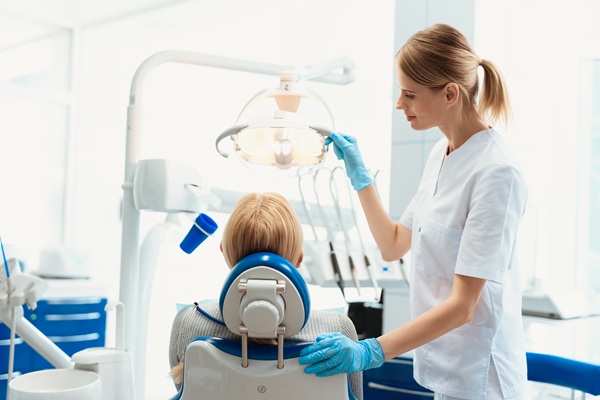Can an Oral Piercing Have an Effect on Your Oral Health?

Oral piercings are a form of self-expression and have become increasingly popular among teenage boys and girls. Many areas of the mouth can be pierced, but the tongue and lips are the most common spots. Although it may seem harmless, this form of body art can bring some complications, including with oral health. Because the area is continuously exposed to moisture, it becomes an ideal breeding ground for bacteria, sometimes causing adverse health side effects.
Tongue rings can lead to infection and swelling if improperly taken care of. Depending on a person's overall health, these infections can cause other health issues. However, these are not the only effects to your health. The jewelry itself can break off in your mouth and damage or cut the inside of your cheeks, tongue, or throat. You can also chip your teeth while you eat, talk or sleep from the metal of the piercing. Most of the times these are relatively minor issues, however, the possibility of it being more severe is always there.
Other oral piercing effects on oral health:
- Difficulty speaking, chewing and swallowing
- Damaged tongue, gums, and fillings
- Difficulty taking an X-ray of your teeth
- Allergic reaction to the metal in jewelry
- Chipped or cracked teeth
It is easy for the jewelry to bump against your teeth when speaking or eating. This frequent contact can chip the tooth enamel. Biting down on it can also cause cracks that extend to the nerves of the tooth, which could require a root canal to fix. Because of these detrimental effects, the American Dental Association advises against the use of tongue, lip and uvula rings. Because of the risks involved such as damage to teeth, the safest path is avoiding oral piercing altogether.
How to avoid problems
If you already have an oral piercing by taking the right steps, you can continue to have good teeth and oral health. Taking care of your piercing properly will help you maintain good oral hygiene and avoid any of the issues covered above. First, start by choosing the right type of jewelry works well with the location in your mouth, and will not cause damage if it bumps against your teeth.
Also, avoid playing with the piercing using your tongue or teeth. It can be tempting, but it has the potential to damage your teeth and gums. Also, check the piercing daily to ensure the ends are properly fastened. Keep the site clean and free of any grime or food particles by using a mouth rinse after every meal. Check the tightness of the ring periodically to prevent it from coming loose, being swallowed or accidentally bitten down on. If you play any sports, remove the jewelry and re-insert it when you are done.
Where the piercing is can make all the difference
If you have a tongue piercing, make sure to use polymer balls to reduce the risk of damaging your teeth. Choose a smaller ball for the underside of your tongue to lower the risk of contact with your sublingual. More importantly, keep your mouth as clean as possible by brushing and using mouthwash after every meal.
When you have an oral piercing, practicing basic oral hygiene should be an even greater priority. Strictly adhere to a professional’s recommendation of brushing and flossing twice daily. The last thing you want to have happen is an infection to begin.
Do you have more questions about how to take care of your oral piercing and teeth? Contact us here: https://www.healthysmilesgeorgetown.com or call Healthy Smiles Dentistry Georgetown at (512) 864-9010 for an appointment in our Georgetown dental office.
Recent Posts
Some dental issues start early on, meaning your child might need a dental checkup at an early age. Even if the child is relatively young, there could be tooth decay or white spots. It means you should think about making your child’s dental appointment as soon as possible. Keep reading to learn more.If there are…
Going in for a dental checkup might not be at the top of your priority list, but it should be. There could be many reasons why you have not been to the dentist’s office for a year or longer. Life can get busy, or you may have fears or anxieties about these visits. Whatever has…
Much like a routine visit to the doctor’s office, a Dental Check-up is a good way to assess how you are doing with oral wellness. It is easy to get busy with life and forget about making this important appointment. However, you should make this a priority for yourself and everyone in your family.A dental…
When it comes to preventive dental care, the approach is two-fold. First, it involves going to the dentist for regular checkups and performing any recommended follow-up treatment. Second, good oral health habits are crucial for keeping the body in good working order. For people living with chronic conditions such as diabetes and osteoporosis, keeping up…


